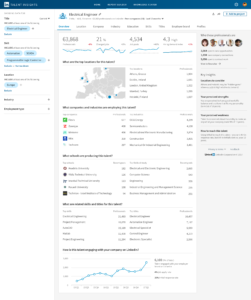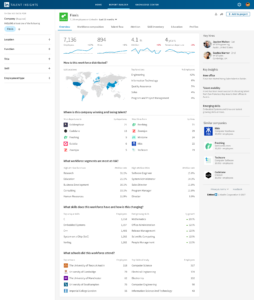It’s the big HR Technology takeaways 2017!
So, as you’re reading this I’m flying back home from ‘the’ HR Technology Conference. Another great show put on by Steve Boese and the LRP team!
There are so many things I take away from this year’s show and I wanted to share some of the bigger ones:
– HR and TA Technology sophistication are surpassing leadership ability in those functions. That’s a broad statement. There are many great HR and TA leaders out there that understand this tech at a very deep level, and they’re doing amazing things at their organizations. 90% don’t. This is a competency we have to increase!
– Artificial Intelligence will take your job. The A.I. company’s marketing will never tell you this, but you’re an idiot if you don’t understand how this works. A.I. will take away more and more task-level work. If you’re a practitioner that spends most of their day doing task-level work, you’re no longer needed, or not as many of you are needed. The ROI for A.I. is not more profit, it’s expense reduction.
– Technology doesn’t stop to let you breathe and catch up. I’ve been coming to HR Tech for years and the one thing is very consistent, every year the technology advances at an increasing rate. You have to work really hard to try and stay up with it.
– HR and TA Technology salespeople continue to struggle to connect the dots. And I think it’s getting worse! I think the biggest issue is trying to sound too sophisticated, and using too much ‘marketing’ speak to explain how your product can help. For the most part, we (HR and TA) are pretty unsophisticated. Just tell us like it is, show us how it works, and what impact it will make. 90% of us will never want to know how the sausage is made, or even care that you know. We get it. You’re smart. Now help us actually solve a real problem.
– This stuff is really cool! I wish we could break everything down easier so everyone felt more comfortable digging into their HR and TA tech stacks and want to get more involved because it’s pretty awesome to see how this industry is evolving our profession!
– There are good guys and gals selling great solutions who truly care about helping you make your company better. And there are assholes who want to make money and could care less about your success. Search out the good guys. Much of the tech we use is not that awfully different from one competitor to the next, but how much they truly care about the success of your organization can vary widely!
The future of HR and TA Technology is very bright. There are really smart people working on stuff that you can’t even imagine. Our industry will look very different in five years, and most of the direction will be coming from successes in other functions like marketing, sales, operations, supply chain, etc.
Keep demoing. Keep advancing your stack where and when you can. Don’t allow IT to pick what you use. Fight for better technology for your teams and your employees.



